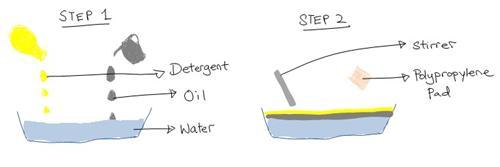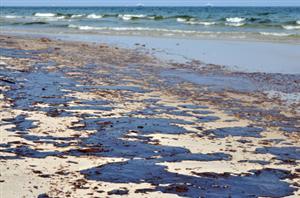| Complexity level: | 6 |
| Project cost ($): | 30 |
| Time required: | 15 minutes preparation time, 15 minutes to observe |
| Material availability: | Polypropylene pads should be available at hardware shops. If not, students can purchase it in bulk from the supplier. Detergents are available in almost supermarket. Engine oil is available at nearby petrol kiosks and in some supermarkets/hardware stores. |
| Safety concerns: |
Hypothesis
Overview
Scientific Terms
Materials
MEL Chemistry — monthly chemistry experiment kits delivered to your door. (Affiliate link)
See what’s includedProcedure

Results
Conclusion
Also consider
References
Related videos
These videos explain the science behind this project and demonstrate key concepts used in the experiment.


